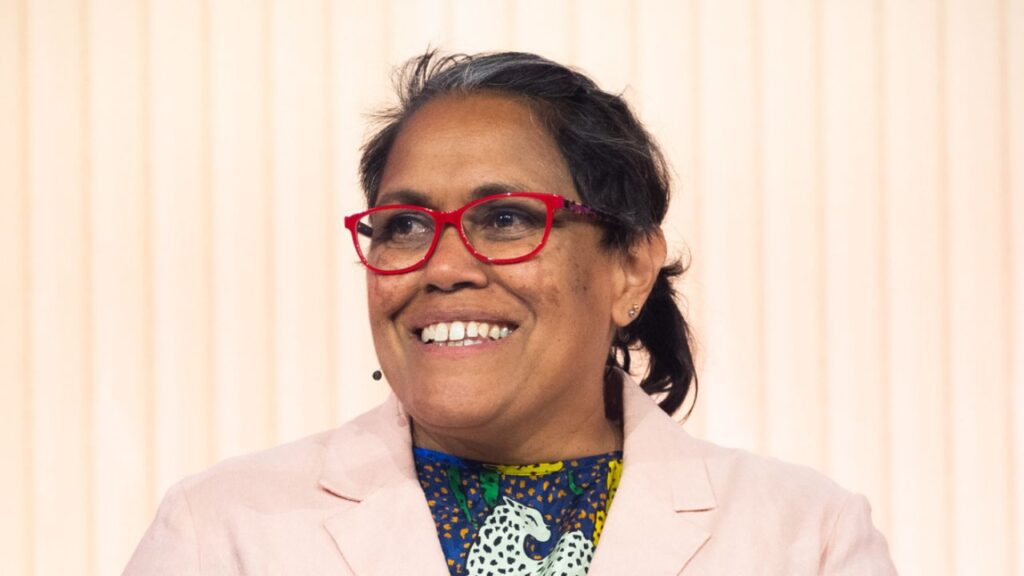Two Australian champions sitting across from each other at Ready25 have mastered something every agent needs: the ability to rebuild confidence after crushing setbacks and channel that resilience into peak performance. Saya Sakakibara and Cathy Freeman have both faced moments where giving up seemed easier than continuing, yet found ways to transform adversity into advantage.
Their approaches to mental preparation, goal-setting under pressure, and bouncing back from failure offer a masterclass in the kind of resilience that separates top performers from the rest.
The Power of Mental Rehearsal
Sakakibara’s preparation for her Paris Olympic gold medal reads like a blueprint for any high-stakes presentation.
Two months before the games, she filmed a point-of-view video of herself navigating the Olympic BMX track – all 34 seconds of it.
“When I went away from that track and, you know, a month before the games, I watched that video every day,” Sakakibara explained.
“Literally in my mind, I was doing that lap the next day.”
The technique went beyond simple visualisation. She rehearsed specific triggers for positive mindset shifts, like spotting a telegraph pole that would remind her to feel grateful rather than nervous.
“Every single race when I saw that telegraph pole I was like, I love it. How cool is it that I get to be here?” she revealed.
This level of mental preparation isn’t just for Olympic athletes.
Agents heading into multi-million dollar listing presentations or difficult negotiations can apply the same principle – rehearsing not just what they’ll say, but how they’ll feel and respond when pressure mounts.

Learning to Lead When Your Support System Collapses
What makes Sakakibara’s story particularly relevant is how she developed self-reliance when external circumstances stripped away her usual support structure.
When her brother Kai – her training partner and motivation – was left in a coma after a training accident, she faced a choice: quit or learn to become her own leader.
“Without having that leader in my life, I had to become that leader myself,” she explained.
“Through that tragedy, I found this new kind of motivation, and it was incredible where I started to really take ownership of my training.”
The transformation was profound. Where she had previously followed her brother’s lead, she began actively engaging with coaches, asking questions, and taking responsibility for her preparation.
“I was feeling like more like I was not lazy anymore. I was like, wow. This drive was in me. Like, I didn’t know that I had that because, you know, I didn’t have to up until that point,” Sakakibara noted.
Freeman’s perspective on setbacks offers another layer of insight.
Despite her iconic Sydney Olympics victory, she revealed that one of her most crucial moments happened away from the cameras during what she calls her “identity crisis” period following a silver medal in Atlanta.
“I’d just come off the back of a silver medal in Atlanta in 1996. And I was sort have, how dare I say, identity crisis days. And I just I think my heart was so broken and so I was just so kind of lost, I guess,” Freeman reflected.
What saved her career wasn’t more training or better strategy – it was the strength of her support team who convinced her to keep going when she wanted to quit athletics entirely.
“From a coach’s point of view, that’s not what you want your athlete to say to you, especially three years out before Sydney,” she acknowledged.
The turning point came when she won her first world title, which gave her the confidence she needed for Sydney.
“If I hadn’t, you know, won that first world title, one of two, I may not have had that momentum and that confidence in myself when it came to lining up in Sydney,” Freeman said.
Rebuilding Identity After Failure
Perhaps the most practical advice comes from how Sakakibara handled her Tokyo Olympics crash. Rather than trying to return to who she was before the setback, she focused on becoming someone new.
“Sometimes we get a setback and we wanna come back. We wanna go back to a person we used to be,” she observed.
“What I had to do really was reveal to someone new.”
This rebuild wasn’t just about technique or training – it meant changing coaches, rebuilding her team, and fundamentally redefining her approach.
Most importantly, it required developing an unshakeable belief in her eventual success, even when facing another concussion a year after Tokyo.
Her mindset coach used a powerful reframing technique: “If I was a time traveler and told you that I’ve seen the future and I’ve told you you’ve won gold in Paris, how would you handle this situation you’re in now?”
The answer was always the same – she wouldn’t worry because she knew where she was heading.
The Clarity of Purpose Under Pressure
Both athletes emphasise the importance of having a clear “why” that transcends immediate setbacks.
For Sakakibara, this became crystallised when she faced the prospect of giving up after multiple concussions: “I wanted that gold medal more than I wanted to give up.”
Having that clarity meant every subsequent challenge felt manageable.
“Every other setback that I’ve faced had less and less weight because I’m like, well, it’s part of the journey.
Like, I know that I’m gonna get there,” she explained.

Freeman echoes this sentiment about embracing difficulty rather than fighting it: “I think you you have two choices in life, you know, and I’ve always been that sort of person who just who’s first of all curious and said that I would rather just give it a go than not.”
From Gold Medal to Growth Mindset
What’s most striking about both athletes is how they define success.
Despite winning Olympic gold, Sakakibara is most proud of the person she became in pursuit of that goal rather than the medal itself.
“What I’m most proud of is not the medal, but is who I became in order to get the medal,” she revealed.
“Becoming a person who believes that I could win an Olympic gold medal was a huge thing for me.”
This shift from external validation to internal transformation offers agents a different way to measure progress – not just by sales figures or awards, but by the resilience, leadership skills, and unshakeable confidence developed along the way.
Freeman’s post-athletics career with her foundation suggests a similar evolution – from individual achievement to lifting others’ potential.
“I’m always interested in, unforeseen potential in young people,” she noted.
For agents facing their own setbacks, criticism, or periods of uncertainty, these Olympic champions show that the real victory lies not in avoiding failure but in developing the tools to transform it into fuel for future success.
Their stories suggest that with the right mental preparation, clear purpose, and willingness to rebuild rather than retreat, any setback becomes simply another step toward an inevitable breakthrough.

